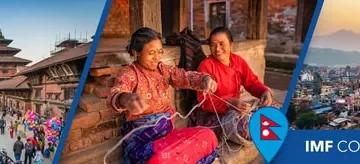In the rural village of Mudzi, located in Zimbabwe’s Mashonaland East Province, Enia Tambo stands side-by-side with her fellow male villagers, using a simple white 25-liter plastic bucket to dig out mounds of sand in the Vhombozi River. Despite being in her late 50s, Enia is determined to reach the water that lies deep beneath the soil, a task that has become increasingly difficult due to the El Niño-induced drought.
For Enia and her community, water has become a precious and scarce resource. The once abundant Vhombozi River has now dried up, leaving the villagers with no choice but to dig deep into the riverbed to access the water that is essential for their survival. With the nearest borehole located several kilometers away, the river has become their only source of water.
Enia’s determination and resilience in the face of such adversity is a testament to the strength and spirit of the people of Zimbabwe. Despite the challenges they face, they continue to work tirelessly to provide for their families and communities.
As Enia digs, she is joined by her fellow villagers, both men and women, who work together as a team to reach the water. It is a community effort, with each person playing their part in the laborious task. The men use their strength to dig through the hard sand, while the women carry the buckets of water back to their homes.
The work is physically demanding, but Enia and her fellow villagers do not complain. They understand the importance of having access to clean water, not just for their own survival, but also for their livestock and crops. Without water, their crops will wither and their animals will die, leaving them with no means to sustain themselves.
The effects of the drought are not limited to the village of Mudzi. The entire country of Zimbabwe has been hit hard by the El Niño-induced drought, with many communities facing similar struggles to access water. In fact, the United Nations has declared Zimbabwe to be one of the countries most affected by the drought, with an estimated 4 million people in need of food assistance.
But despite these challenges, Enia and her community remain resilient. They have not given up hope and continue to work hard to overcome the drought. They have come up with innovative ways to conserve water, such as using plastic buckets to collect rainwater and digging shallow wells in the riverbed.
Enia’s determination and hard work have not gone unnoticed. She has become a source of inspiration for her community, especially for the younger generation. Her dedication to providing for her family and community serves as a reminder that with hard work and determination, anything is possible.
The government of Zimbabwe has also taken notice of Enia and her community’s efforts. They have provided assistance in the form of water tanks and boreholes, but the villagers know that they cannot rely solely on outside aid. They must continue to work together and find sustainable solutions to overcome the drought.
Enia’s story is just one of many in Zimbabwe, where communities are coming together to overcome the challenges of the El Niño-induced drought. It is a reminder that even in the face of adversity, the human spirit is resilient and can overcome any obstacle.
As Enia and her fellow villagers continue to dig for water, they do so with hope and determination. They know that their hard work will pay off and that one day, the Vhombozi River will flow freely once again. And when that day comes, they will be ready to face whatever challenges may come their way, knowing that they have the strength and resilience to overcome them.




